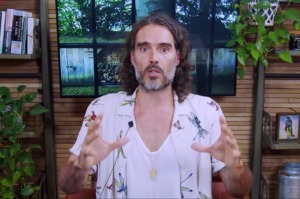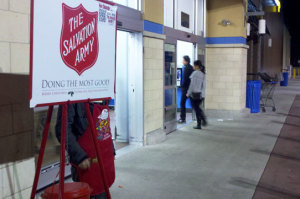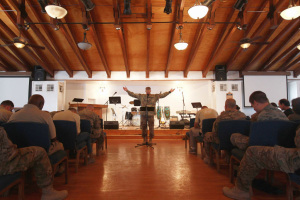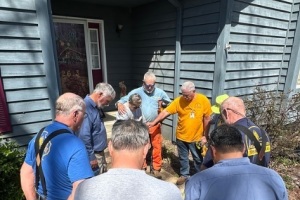Calif. Episcopal Church Files Brief Supporting Gay Marriage, Explains Reasoning
As the Supreme Court gets set to review a number of cases that will determine the future of gay marriage in America, more than two dozen Episcopal bishops in California signed briefs opposing both Proposition 8 and the Defense of Marriage Act.
"The Episcopal Church has always seen itself as existing in our culture, not outside or above or in opposition to our culture. For over a century, Episcopalians look to the model of Christ transforming culture, rather than, say, Christ against culture," explained the Rev. Marc Handley Andrus, bishop of the Episcopal Diocese of California, in a statement to The Washington Post.
"On marriage equality, our church has traveled on pilgrimage with our culture. Sometimes we have led in advocacy for marriage equality, and sometimes we have learned from the culture and from leaders outside the church. We have developed rites for blessing and marriage for all, and we have extended the support of the church to LGBT people in the form of premarital counseling and the integration of same-sex couples into loving communities of faith," the bishop added.
Along with signing the brief against California's 2008 amendment banning same-sex marriage, the Episcopal California bishops also joined bishops in nine other states and Washington, D.C., to challenge DOMA.
The Obama administration has also filed briefs against Proposition 8 and DOMA, which was signed by former President Bill Clinton and established the traditional definition of marriage between one man and one woman.
"Our journey is not complete until our gay brothers and sisters are treated like anyone else under the law, for if we are truly created equal, then surely the love we commit to one another must be equal as well," President Barack Obama said during his second inauguration speech in January.
The Supreme Court is set to review the marriage cases in March, and the justices may decide to uphold the bans on gay marriage; leave the decision up to the states as the process currently goes; or outlaw banning same-sex marriage altogether. Currently, nine U.S. states, and the District of Columbia, have legalized the practice, though Americans remain divided on the issue.
The Roman Catholic Church and the large Protestant churches in America have openly declared their support for traditional marriage, but more liberal churches, such as The Episcopal Church and the United Church of Christ are backing same-sex marriage.
Andrus acknowledged the criticism that Episcopalians sometimes receive, such as people calling them "Catholic light" or accusing them of lacking any clear moral standards.
"It is easy for such a church, the argument goes, to irresponsibly accept culturally-led innovations like marriage equality," the California bishop positioned.
"The Christ whom we recognize is the one who speaks in John's Gospel, saying, 'There are many things I would teach you but you cannot bear them now … the Sprit will lead you into all truth.' For Episcopalians, tradition is a moving force that is not only dynamic but that changes quality over time, and we might liken the change to be one of more light being cast into the world."
The Episcopalian leader pointed out that the church overturned close to 2,000 years of tradition when 34 years ago they started accepting women as priests – and they also stood up against widely accepted practices when opposed to slavery and racial prejudice.
"We traded our cultural privilege and hegemony as a largely Anglo denomination for the wealthy and have deliberately become more and more consciously a church for all. In all these things we have prayed and thought and been in earnest conversation in and out of the church, and believed that in the end we have discerned better the mind of Christ than we had in the past," Andrus contended.





























